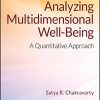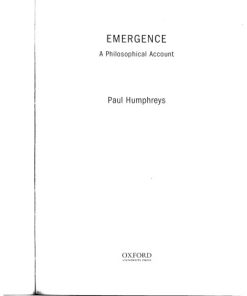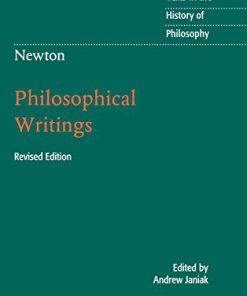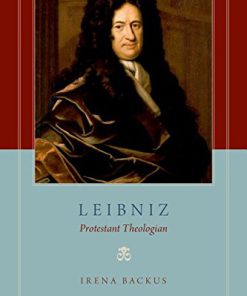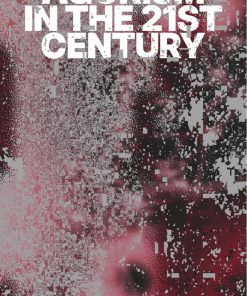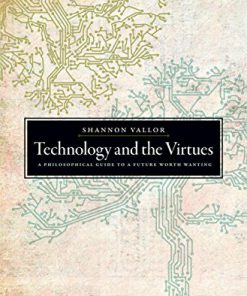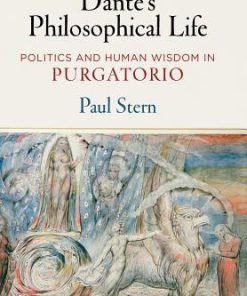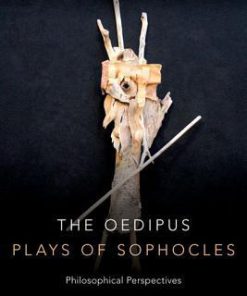Leibniz’s Key Philosophical Writings A Guide 1st edition by Paul Lodge, Lloyd Strickland 0192583581 9780192583581
$50.00 Original price was: $50.00.$25.00Current price is: $25.00.
Leibniz’s Key Philosophical Writings: A Guide 1st edition by Paul Lodge, Lloyd Strickland – Ebook PDF Instant Download/DeliveryISBN: 0192583581, 9780192583581
Full download Leibniz’s Key Philosophical Writings: A Guide 1st edition after payment.

Product details:
ISBN-10 : 0192583581
ISBN-13 : 9780192583581
Author: Paul Lodge, Lloyd Strickland
Gottfried Wilhelm Leibniz (1646-1716) is one of the most important and influential philosophers of the modern period. He offered a wealth of original ideas in metaphysics, epistemology, ethics, and philosophical theology, among them his signature doctrines on substance and monads, pre-established harmony, and optimism. This volume contains introductory chapters on eleven of Leibniz’s key philosophical writings, from youthful works (“Confessio philosophi”, “De summa rerum”), seminal middle-period writings (“Discourse on Metaphysics”, “New System”), to masterpieces of his maturity (“Monadology”, “Discourse on the Natural Theology of the Chinese”). It also covers his two main philosophical books (New Essays on Human Understanding and Theodicy), and three of his most important philosophical correspondences with Antoine Arnauld, Burcher De Volder, and Samuel Clarke. Written by internationally-renowned experts on Leibniz, the chapters offer clear, accessible accounts of the ideas and arguments of these key writings, along with valuable information about their composition and context. By focusing on the primary texts, they enable readers to attain a solid understanding of what each text says and why, and give them the confidence to read the texts themselves. Offering a detailed and chronological view of Leibniz’s philosophy and its development through some of his most important writings, this volume is an invaluable guide for those encountering Leibniz for the first time.
Leibniz’s Key Philosophical Writings: A Guide 1st Table of contents:
1 Leibniz’s life
0.2 Leibniz’s philosophical writings
0.3 Principles of selection
1. “Confessio philosophi”
1.1 The best of all possible worlds
1.2 The damned
1.3 Upholding the justice of God
1.4 The place of the “Confessio” in Leibniz’s theodicy project
2. “De summa rerum”
2.1 A philosophical laboratory
2.2 First principles
2.3 Simple forms and explanatory parallelism
2.4 The derivation of things from forms
2.5 Necessity and the foundations of physics
2.6 Monism and the ultimate reason of things
2.7 Conclusion: the Hanoverian aftermath
3. “Discourse on Metaphysics”
3.1 God and his choice of the best (§§1–7)
3.2 Substance (§§8–16)
3.3 Physics (§§17–22)
3.4 The relationship between God and minds (§§23–37)
3.5 The purpose of the “Discourse”
4. The Correspondence with Arnauld
4.1 Introduction and background
4.2 Complete concepts and contingency
4.3 Substance and body
4.4 Causation
4.5 Minds and the city of God
4.6 Conclusion
5. “New System of the Nature of Substances …”
5.1 Introduction
5.2 A text with many layers
5.3 Animals and atoms: substance
5.4 The system of correspondences
5.5 Conclusion
6. The Correspondence with De Volder
6.1 The impetus and primary motivations for the correspondence
6.2 Pedagogical exoteric writing
6.3 Three phases of the correspondence
6.4 The first phase
6.5 The second phase
6.6 The third phase
7. New Essays on Human Understanding
7.1 Background and purpose
7.2 Dialogue form
7.3 Interpretation of the dialogue
7.4 Some general themes
7.5 Ideas
7.6 Ideas, images, signs, and propositional knowledge
7.7 Logical, real, and physical genera
7.8 Forces and the constitution of a substance
7.9 Souls, bodies and the pre-established harmony
7.10 Souls and bodies as substantial, concrete, real, and physical
7.11 A posteriori reasoning across the sciences
8. The Theodicy
8.1 General background
8.2 The preface
8.3 Preliminary Dissertation on the Conformity of Faith with Reason
8.4 The Essays
8.4.3 Problems concerning human freedom
8.5 Conclusion
9. The “Monadology”
9.1 Origins and publication
9.2 The metaphysical realm (§§1–60)
9.3 The physical realm (§§61–82)
9.4 The moral realm (§§83–90)
9.5 Fate and influence
10. The Correspondence with Clarke
10.1 Background to the correspondence
10.2 The principles of sufficient reason and identity of indiscernibles, God’s choice, space and time
10.3 Space as the sensorium of God
10.4 God’s presence and activity in the world, miracles, and gravity
10.5 Atoms and the void
10.6 The end
11. “Discourse on the Natural Theology of the Chinese”
11.1 The European encounter with China: texts and travels
11.2 The history of Leibniz’s engagement with China and Chinese thought
11.3 The importance of the “Discourse” for Leibniz
11.4 Leibniz’s “reformation” of Chinese thought
11.5 The structure and argument of the “Discourse”
11.6 The hallowing of ancient Chinese sources by Leibniz
11.7 Conclusion: The “Discourse” as the key to Leibniz’s treatment of pagans
People also search for Leibniz’s Key Philosophical Writings: A Guide 1st:
leibniz philosophical essays pdf
leibniz philosophical essays
leibniz writings
leibniz’s key philosophical writings a guide
leibniz philosophical writings
Tags: Leibnizs Key, Philosophical Writings, Paul Lodge, Lloyd Strickland
You may also like…
Politics & Philosophy - Anthropology
Emergence A Philosophical Account 1st Edition by Paul Humphreys ISBN 9780190620325 0190620323
Politics & Philosophy - Anthropology
History - World History
Leibniz : protestant theologian 1st Edition Backus 9780199891849, 0199891842
Politics & Philosophy - Government & Politics
Agorism XXI I Agorism in The 21st Century A Philosophical Journal 1st Edition Paul Dylan-Ennis
Politics & Philosophy - Anthropology
Technology and the virtues : a philosophical guide to a future worth wanting 1st Edition Vallor
Poetry - European Poetry
Politics & Philosophy - Ancient & Medieval Philosophy
Romance - Paranormal Romance



